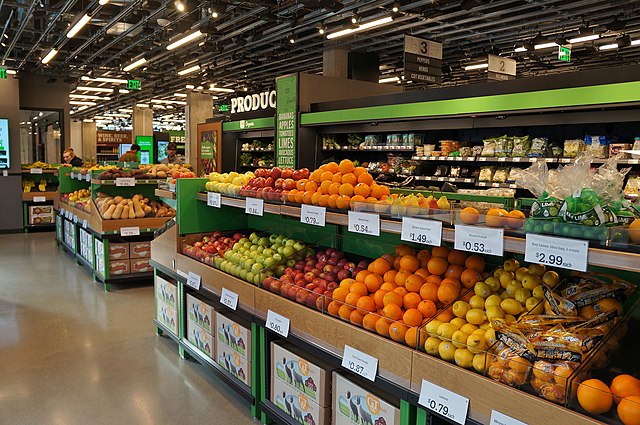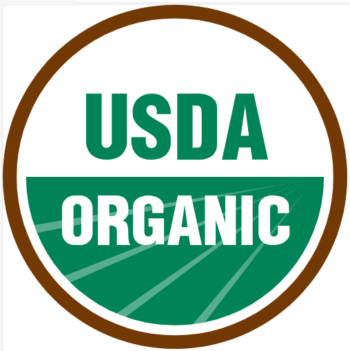 I often come across misconceptions about the organic food industry in the United States, especially when discussing it with seniors who are trying to make healthier choices.
I often come across misconceptions about the organic food industry in the United States, especially when discussing it with seniors who are trying to make healthier choices.
The truth is, while the business of food in the US does navigate a landscape that seems to prioritize profit over health, there is a silver lining in the form of organic food regulations.
These regulations serve as safeguards for consumers, setting strict standards for what can be labeled as ‘organic’.
The USDA Organic seal is more than just a label; it’s an assurance that the food has met rigorous production and handling standards. It signifies a commitment to quality that goes beyond basic food safety.
In ensuring the integrity of the organic designation, regulatory bodies specify that organic produce must be grown without synthetic pesticides, genetic modifications, or irradiation.
For meat, the organic standard ensures animals were raised in living conditions accommodating their natural behaviors, fed 100% organic feed, and not administered antibiotics or hormones.
For seniors who are generally more vulnerable to health issues, understanding these regulations is crucial.
It offers them the confidence that the food choices they are making are genuinely beneficial for their health. The organic standards offer a layer of protection against the myriad of issues that can stem from a diet laden with additives and chemicals.
As we transition into the examination of conventional foods, it becomes increasingly clear why this protection is vital.
Seniors need to be mindful of what goes into their bodies, as the problem isn’t necessarily the food itself; it’s what may be in the food that’s the issue.
It’s a topic well worth exploring, especially as it relates to the heightened susceptibilities that come with age.
The Hidden Dangers in Conventional Foods
 When I scan the aisles of the grocery store, I see shelves stacked with vibrant packages, each promising nourishment and flavor.
When I scan the aisles of the grocery store, I see shelves stacked with vibrant packages, each promising nourishment and flavor.
Yet, I understand that within these conventional food products lies a concoction of additives and chemicals. For seniors especially, this could mean consuming substances that their bodies might struggle to process.
Synthetic preservatives, artificial colorings, and flavor enhancers are a few of the ‘extras’ one might ingest when eating non-organic foods.
These substances often extend shelf life and improve taste but can have unintended consequences on health.
For instance, certain additives have been linked to allergic reactions and other health concerns, which become even more pressing as we age.
It’s paramount to consider what goes into our bodies, especially since the occurrence of age-related chronic diseases could be influenced by these chemical interlopers.
In non-organic foods, pesticides and herbicides can linger on, and while the concentrations might be low, the cumulative effect over time can’t be ignored.
This isn’t just about scare tactics; it’s about being informed.
Real food – that is, organic food – offers straightforward nourishment. It’s food in its most genuine form, free from synthetic additives that our bodies were never designed to process efficiently.
The Holistic Approach to Organic Food Production
When discussing organic foods, it’s critical to look beyond just the final product on the store shelf.
The story of organic food begins long before it reaches the plate; it starts on the farm where every detail, from the soil to the seeds, plays a pivotal role in what’s ultimately consumed.
 Sustainable farming practices are the backbone of organic food production.
Sustainable farming practices are the backbone of organic food production.
Unlike conventional methods that often rely on synthetic fertilizers and pesticides, organic farming prioritizes natural processes and materials that don’t just aim for short-term yields but also consider long-term soil health and ecosystem balance.
For seniors, understanding the production journey of their food is especially important. The use of organic fertilizers, like compost and manure, and organic feed for animals can significantly reduce the exposure to harmful substances.
These practices ensure the food is not only nourishing but also free of the residues that could be detrimental to an aging body’s health.
The implications of how food is produced extend beyond individual health.
Environmentally, organic farming supports biodiversity, conserves water, and reduces pollution.
This ‘big picture’ approach to agriculture ties directly into the health of the soil and, consequently, the nutritional value of the food produced from it.
As we progress into senior years, the shift towards a diet rich in organic produce and ethically raised meats supports not only our personal health but also the planet.
The choices made at the grocery store have a ripple effect, impacting more than just the individual; they contribute to a collective wellbeing.
Organic Foods and Senior Health: Process the Benefits
As we age, our bodies often become less efficient at processing nutrients and eliminating toxins.
This is why the quality of food seniors consume takes on greater significance.
The simplicity of organic foods lies in their natural composition, devoid of synthetic additives, making them easier for older bodies to process.
 Consider the nutritional superiority of organic produce, which often contains higher levels of important antioxidants and nutrients.
Consider the nutritional superiority of organic produce, which often contains higher levels of important antioxidants and nutrients.
These are essential for seniors who need to support their immune systems and overall health. The absence of pesticides and herbicides in organic foods also means less chemical intake, a particular concern for the elderly who may have diminished liver and kidney functions.
Long-term, the consistent consumption of organic foods can contribute to better health outcomes for seniors.
Studies have indicated that organic diets are associated with reductions in health risks such as allergies, obesity, and cardiac diseases, all relevant concerns for the senior demographic.
The equation is simple: a diet filled with organic foods equals less exposure to potentially harmful chemicals, leading to a cleaner bill of health.
This is the holistic approach that views food as the first medicine, akin to the adage ‘an apple a day keeps the doctor away’.
Bluntly put, when seniors choose organic, they’re not just selecting a type of food, they’re opting for a healthier life trajectory.
Invest in Organic Foods: A Cost-Benefit Analysis for Seniors
I understand the hesitation. Scanning the aisles, your eyes land on the price tag of organic foods, and it’s easy to balk at the cost.
It’s natural to wonder if the benefits justify the expense, especially when you’re on a fixed income.
However, consider this: the extra dollars you spend on organic foods aren’t merely an expense; they’re an investment in your health.
When we talk about cost, most people think only of the price at the register. But the real cost of eating includes its impact on our health and medical expenses down the line.
For seniors, this is particularly poignant.
 Frequent doctor visits, prescription medications, and chronic health issues are expensive and can quickly outpace the cost of paying a bit more for organic food now.
Frequent doctor visits, prescription medications, and chronic health issues are expensive and can quickly outpace the cost of paying a bit more for organic food now.
Eating organic helps reduce the exposure to pesticides and other harmful chemicals, which can have long-term health effects, potentially saving you from costly medical treatments.
What’s more, reallocating funds from unhealthy habits to pay for organic food can be a smart swap.
The math is simple. Cutting back on non-essentials like smoking, excessive drinking, or even a daily fancy coffee can free up more than enough to cover the cost difference of choosing organic.
Some might argue that the price of organic food is too steep. However, when I look at it as an investment, it shifts my perspective.
Would I pay a little more today to potentially reduce my future medical bills and improve my quality of life?
Absolutely!
It’s clear that when we weigh the benefits versus the costs, the scales tip in favor of eating organic—for our health’s sake.
Make Informed Choices: Balance Cost and Quality in Your Diet
I see food choices as decisions with long-term implications for health and well-being. Especially for seniors, these choices can mean the difference between a vibrant, healthy lifestyle and one burdened with health issues.
So when you’re standing in the aisle, weighing the merits of organic versus conventional foods, remember: it’s not just about the price tag you see today.
 The essence of choosing organic is grasping its broader impact. You’re selecting products free from the ambiguity of additives and designed to support your body’s natural functions.
The essence of choosing organic is grasping its broader impact. You’re selecting products free from the ambiguity of additives and designed to support your body’s natural functions.
The way I see it, the best food is what comes directly from the animal or plant to the plate. The more it’s been processed, the more chance there is for pollution.
Nature is by far the best producer of food.
That’s vital as we age and our systems crave clean, wholesome fuel.
It’s important to recognize, however, that ‘organic’ doesn’t necessarily mean ‘nutrient-dense.’
Aim to choose whole, organic foods that pack a punch in terms of vitamins, minerals, and other nutrients.
Certainly, budgets matter, and the cost difference can’t be ignored. But consider this: reallocating funds from non-essential or unhealthy purchases to invest in better food could actually be a cost-saving strategy in the long run.
Cutting out one less trip to the drive-thru or skipping the afternoon vending machine snack can add up—both in dollars saved and health benefits gained.
In conclusion, I encourage you to look past the immediate expense and see the profound value of organic foods for seniors.
View each dollar spent as an investment in your health, and remember that the benefits go far beyond the checkout line.
With thoughtful planning and smarter shopping, you can nourish your body with the quality it deserves without sacrificing financial balance.
 People May Also Ask
People May Also Ask
Q: I’m on a tight budget. Can I still afford to eat organic?
A: While organic food can be pricier, there are ways to incorporate it into your diet without breaking the bank. Focus on buying organic for the “Dirty Dozen” fruits and vegetables with the highest pesticide residues, and consider buying conventional for fruits and vegetables with lower levels. You can also look for sales and store brands, which are often cheaper than national brands. Additionally, consider growing your own organic herbs and vegetables, which can save money in the long run.
Q: Are organic foods really healthier than conventional foods?
A: The research is still ongoing, but some studies suggest that organic foods may have higher levels of antioxidants and certain nutrients, as well as lower levels of pesticide residues. However, the nutritional content of both organic and conventional foods can vary depending on the type of food and how it’s grown. The most important thing is to eat a variety of fruits, vegetables, and whole grains, regardless of whether they are organic or conventional.
Q: Is it safe to eat organic meat and dairy?
A: Organic meat and dairy products come from animals that are raised without antibiotics or hormones and fed 100% organic feed. This can be a healthier option for some people, especially those who are concerned about the use of antibiotics in meat. However, it’s important to choose organic meat and dairy that is also lean and low in saturated fat.
Q: Where can I find organic food?
A: Organic food is becoming increasingly available in grocery stores, farmers markets, and online retailers. You can also check with your local community-supported agriculture (CSA) program to see if they offer organic produce.
Q: What are some tips for shopping for organic food?
A: Look for the USDA Organic seal on food packaging. This seal ensures that the food has met all of the USDA’s organic standards. You can also compare prices at different stores and look for sales. Consider buying in bulk if you have the storage space, as this can be a more cost-effective way to buy organic food.
Q: Are there any health risks associated with eating organic food?
A: Organic food is generally safe to eat, but there is a small risk of foodborne illness, just as there is with any type of food. Be sure to wash all fruits and vegetables before eating them.
Q: Is organic food better for the environment?
A: Organic farming uses practices that are better for the environment than conventional farming, such as reducing pollution and protecting soil health. This can have a positive impact on the health of both people and the planet.
Leave comments and questions in the space below. I will promptly reply.


This insightful article highlights the numerous benefits of incorporating organic foods into the diet of seniors. The emphasis on the USDA Organic seal as a guarantee of rigorous standards, coupled with the holistic approach to organic food production, demonstrates the commitment to quality and health. The cost-benefit analysis offers a thoughtful perspective, encouraging readers to view spending on organic foods as an investment in long-term health. Overall, a well-rounded and informative piece advocating for the positive impact of organic choices on senior health and well-being. Thank you.
Hi Ela, thanks for your comments. Although the article is written for seniors, I recommend that everyone go organic as much as possible.
I can’t think of many things that are more important than our health and knowing how to eat properly. It’s the most basic form of education I know of.
Leave comments and questions here anytime. I will promptly reply.
Bob